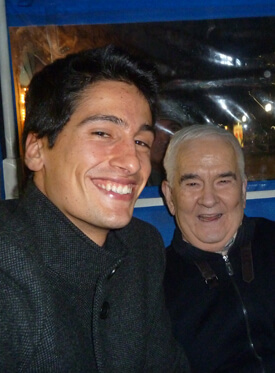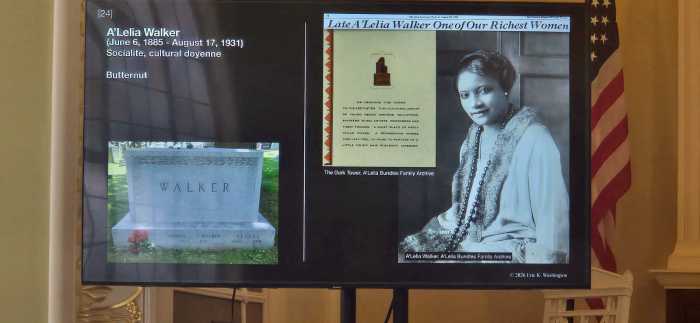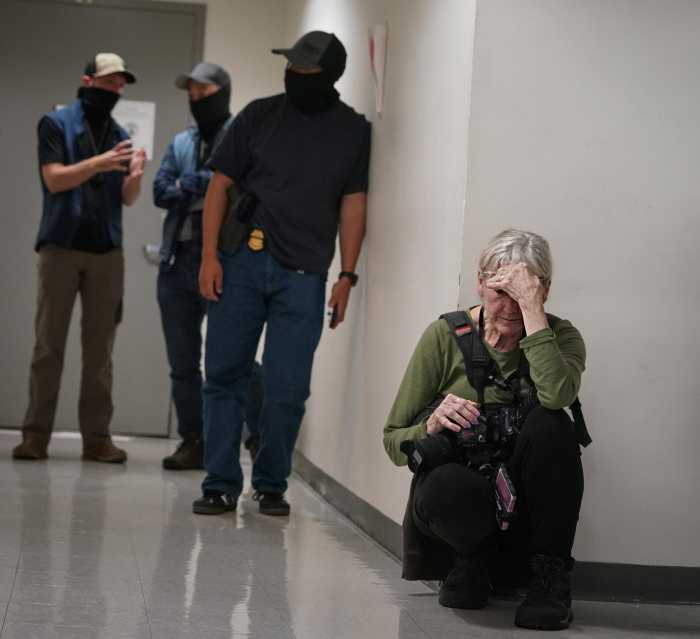Renato Seabra.
Calling the murder of Carlos Castro a “chilling example of the manifestation of man’s inhumanity to man” that was fraught with “sadism,” a judge sentenced Renato Seabra to 25-years-to-life in the 2011 slaying.
“The sentence will be –– not in knee-jerk fashion, but considered –– 25-to-life,” said Daniel P. FitzGerald in Manhattan Supreme Court on December 21.
Moments before, David Touger, who represented the 23-year-old along with Ruben M. Sinins, told the judge that the law allowed a range for second-degree murder from a minimum of 15-to-life to the 25-to-life maximum and asked that Seabra be given 18-to-life. The sentence Seabra received means he must serve 25 years before he is eligible for parole.
Touger cautioned the judge against a “knee-jerk” maximum sentence.
During the two-month-long case, the defense argued that Seabra was insane when he strangled, beat, and castrated the 65-year-old Castro in a Manhattan hotel room and so was not legally responsible. The defense presented two experts and thousands of pages of medical records. Seabra said he believed he was acting on instructions from God when he committed the murder.
Renato Seabra and his victim, Carlos Castro, the week of the gruesome murder. | MANHATTAN DISTRICT ATTORNEY
The prosecution, which was handled by Maxine Rosenthal and Jun Park, two assistant district attorneys, argued that Seabra was using Castro for money and to advance his modeling career. The younger man killed Castro in a rage when the older man told him their relationship was over and they would be returning early to Portugal, the prosecution said.
In an unambiguous rejection of the defense theory, the jury deliberated for roughly a day before finding Seabra guilty on one count of second-degree murder on November 30. Despite the verdict, Touger argued that FitzGerald should weigh Seabra’s state of mind.
“There is only one way that Renato could have done this act and that is if he was in the throes of a mental illness or defect,” Touger told FitzGerald.
Seabra addressed the court before sentencing.
“I just want to request the opportunity to ask for forgiveness from Carlos Castro’s family and friends,” he said through a Portuguese interpreter. “I killed Carlos Castro. That’s not anything I want to prove differently… I accept any time the judge will tell me because I committed the crime.”
Seabra’s mother, who lives in Portugal, attended many of the pretrial hearings and the trial, and was at the sentencing. She wept openly during the sentencing, as did Castro’s friends and family.
Seabra did not revisit his defense.
“I was never aggressive before,” he said. “I never had any fight with Carlos… That day I don’t know what took over me.”
Rosenthal told FitzGerald that Seabra was “a dangerous man” and “an angry man capable of extreme violence” and asked for the maximum sentence.
“This defendant who so viciously took another life should spend the rest of his life behind bars,” Rosenthal said.
Rosenthal read a letter from Castro’s family that described Castro’s early life in Angola, where he was born, to his success in Portugal as “a prominent figure in the cultural and artistic scene.”
Castro was a TV personality and writer, and was active in the gay rights movement in Portugal. He was also well-traveled.
“His favorite place in the world was New York City,” the family wrote. “Carlos Castro was in love with this city.”





































